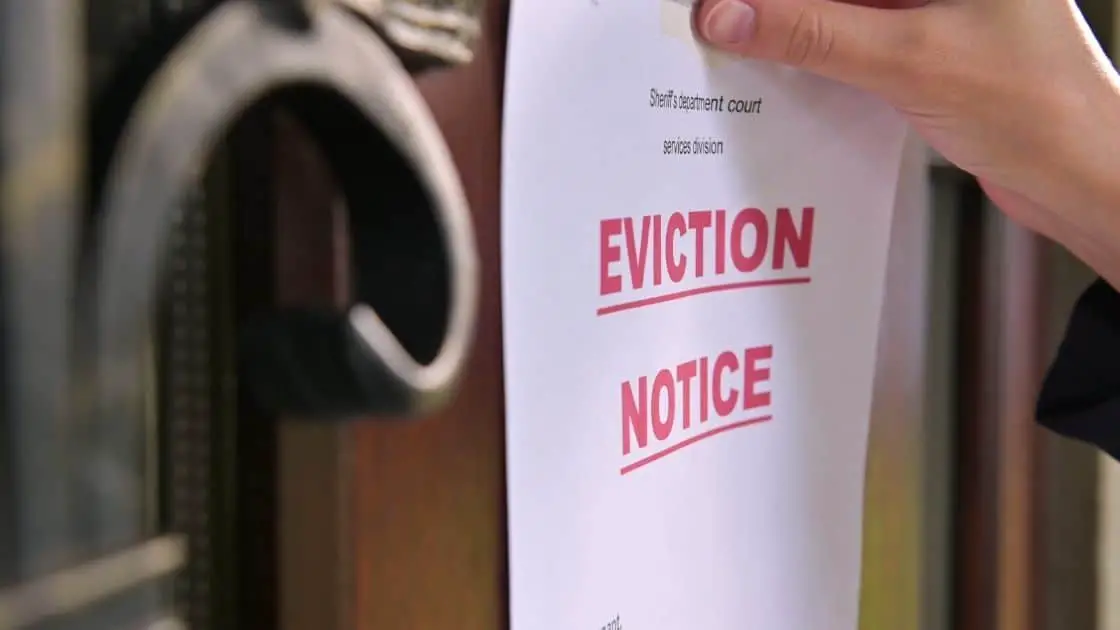Are you facing complaints from your neighbors about noise coming from your home? If so, you could be in danger of being evicted.
But how many complaints does your landlord need to receive before eviction? Read on to find out.
The information contained in this post is for informational purposes only. It is not legal advice. You should seek the advice of a qualified legal professional before making any decisions relating to the topics covered by this article.
We may earn commissions from products and services that are purchased or recommended through our website as part of our affiliate partnerships. As an Amazon affiliate, we may earn from qualifying purchases.
What Is A Noise Complaint?
If someone complains about the noise you are making in your apartment, you could be facing eviction by your landlord.
Of course, one complaint doesn’t warrant removing you from your home, but if there are several or frequent complaints, then it becomes serious.
The basis for a noise complaint should be that the level of noise is excessive. What does this mean?
Well it can mean different things to different people, but some examples are, loud music, yelling, slamming doors or late night parties.
Typically, noise that is accepted is what we normally consider part of daily life. For example, children playing, babies crying, footsteps on the stairs, etc.
If you want a more detailed analysis of what is considered normal apartment noise, check out my article on the topic here.
However, some people are more sensitive to noise than others.
The best approach if you know someone has an issue with noise coming from your apartment or house is to speak to them and try to resolve things diplomatically.
Once your landlord is involved, the situation can take on a more serious tone
You should know your rights and what constitutes a real eviction possibility, and do your best to resolve it before it gets to that stage.
Local Laws
Most towns and cities have noise ordinances, and these are designed to allow people quiet enjoyment of their home.
These rules seek to control and restrict the level and times that noise occurs in the area. The specifics will vary depending on the town or city rules.
Occupants of rental units and other similar types of housing are entitled to quiet enjoyment, and any persistent or excessive noise will violate that right.
This is where the noise complaint may arise, and the person affected may approach the landlord to complain.
Occasionally, someone may be so incensed by the amount of noise coming from your apartment that they call the police.
Most of the time this will not be the case, but some instances of noise such as loud music late at night can warrant this response.
If your neighbor is complaining that you are making excessive noise at certain times of day, check out the local noise ordinance to check what the limits are.
Resolving the issue between you is preferable to involving the police and your landlord.
What’s In The Lease?

For your landlord to enforce a violation of your lease on the grounds of a noise complaint, then the lease must include restrictions on noise levels.
This doesn’t take precedence over local noise ordinances, however, which will still apply.
If your neighbors have called the police on you because of excessive noise, then the landlord will usually be made aware of this.
However, only if they have included a clause in your lease about noise levels or not violating others’ quiet enjoyment of their apartment will they be able to take legal action against you.
The specificity of the clause will be a better guide for tenants to understand what is considered excessive noise and what is accepted as reasonable.
If there is a clause in your lease that restricts the time and amount of noise that is acceptable, and you breach this clause, then you have violated the lease.
So it is important to be clear about what is and is not included in your lease.
How Many Complaints Before Eviction?
In reality, there is no set number of complaints that have to be made in order to begin the eviction process. The decision to evict will likely be determined based on the frequency and severity of your violations, and how you have responded to them.
Once a complaint has been made to your landlord, they will probably visit your property to speak to you and get your side of the story.
You may be unaware that the noise you are making is affecting your neighbors. At this stage, an apology may be all that is needed.
In the case that you deny making the noise, the landlord may then speak to neighbors other than those who submitted the complaint to gauge if there is a problem or not.
If it turns out that others have also been disturbed by your noise, then the landlord will have to act.
At this point, a warning may be issued by the landlord for you to keep the noise down in the future.
They may remind you of the terms of your lease and the consequences to you of not sticking to them.
Should the noise problem persist, and your landlord continues to receive complaints, then the next stage will be for them to issue a cure or quit notice.
This orders you to stop the behavior causing the complaint or leave the property.
Your lease agreement or state statute will determine how long you have to respond or stop the activity.
If you fail to stop, your landlord may begin the eviction process.
How Does Eviction Work?
If you fail to abide by the cure or quit notice, the next stage will be the notice to quit. How long you have to leave is decided at state level.
Failing to leave within this time frame will likely start the eviction process.
In many cases, the landlord must either deliver the eviction notice to you personally or send it by certified mail, as well as posting it on your front door. But the specific requirements will vary by state or local law.
If you do not leave within the time stated on the notice, the landlord will likely then go to court to get you evicted.
The bottom line is that living in proximity to other people can often cause disputes, especially around noise levels.
However, being considerate can prevent any disagreement with neighbors that could result in losing your home.


